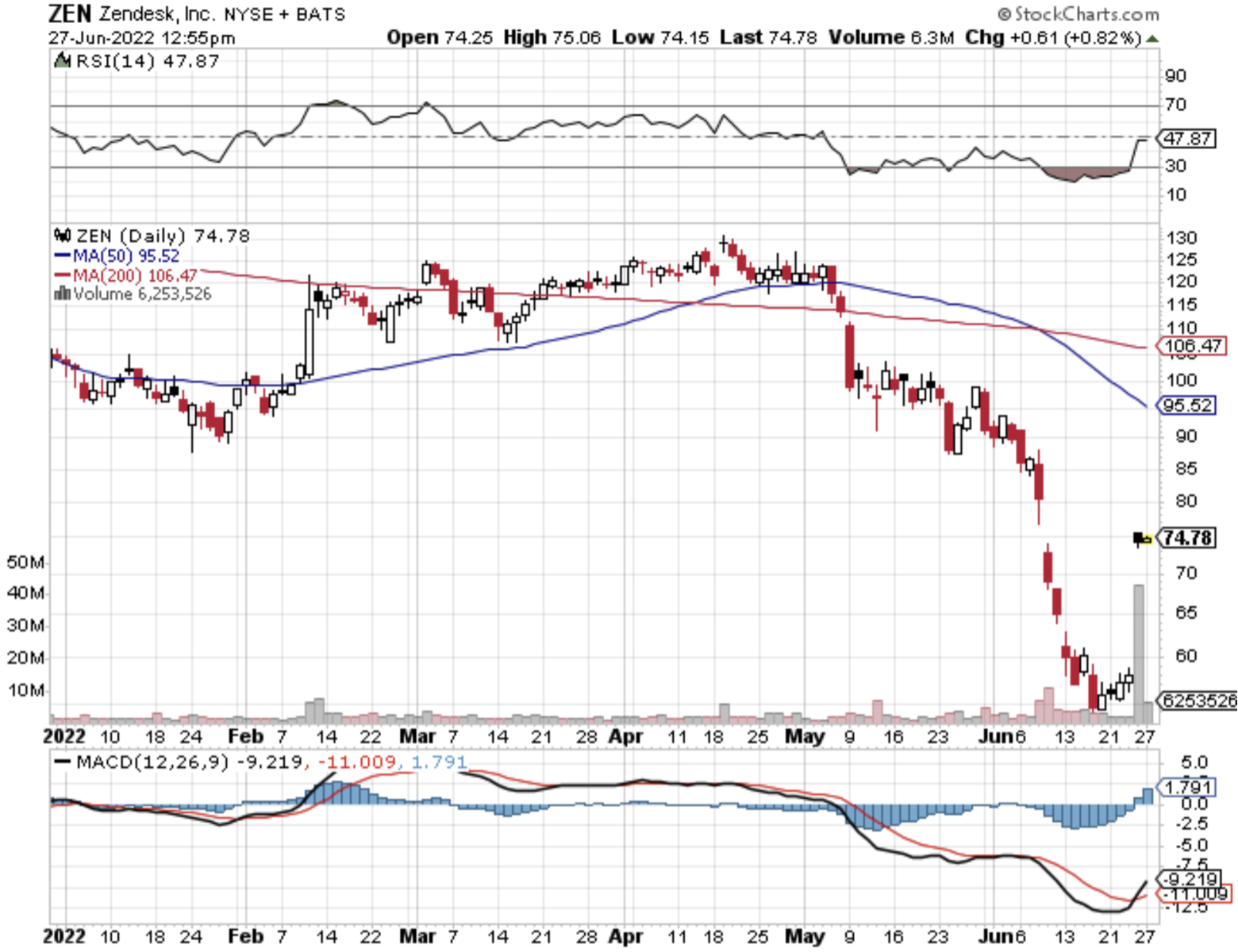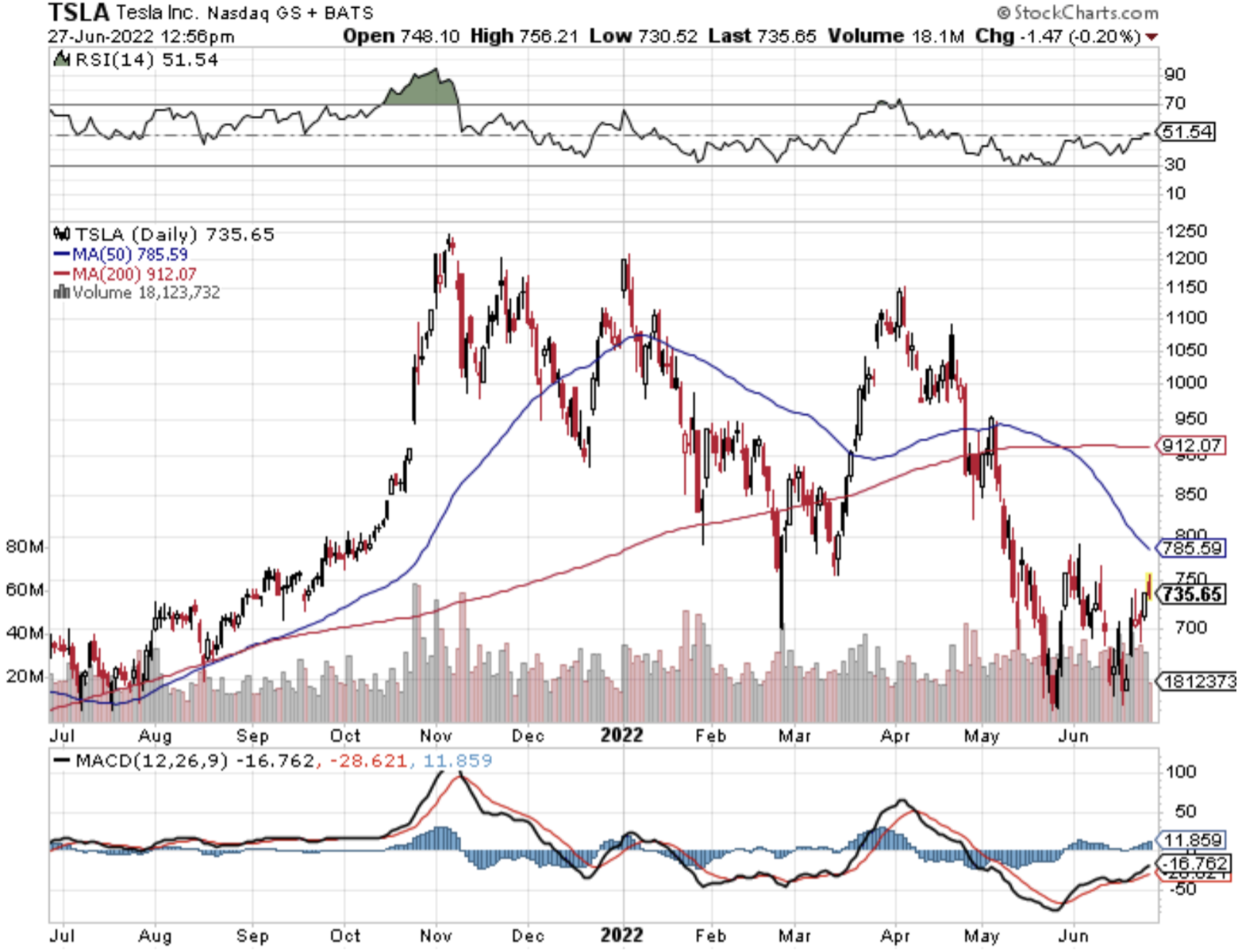Nothing Zen About Zendesk
Zendesk (ZEN) bought out for $10.2 billion is good business.
This is after ZEN declined a $17 billion offer just 4 months ago which in hindsight looks highly illogical.
This event crystallizes the souring mood in growth technology that has seen a colossal re-rating of its assets during a cringe-worthy stock market sell-off.
These micro-events bode poorly for growth tech and expect desperation from the illiquid.
Remember that the quickest way to go out of business is to not have any money.
Interest rates skyrocketing has really harmed the ability of growth tech to pay interest on their corporate bonds or to even issue reasonable debt.
The attack on balance sheets is what everybody is scared of and rightly so.
The investor consortium buying the company includes Hellman & Friedman, Permira, a subsidiary of the Abu Dhabi Investment Authority, and Singapore’s GIC sovereign wealth fund. Subject to shareholder approval, the deal is likely to close in Q4 this year, after which time ZEN will operate as a private company.
ZEN isn’t all that bad of a company based on pre-pandemic metrics.
However, fast forward to today and the goalposts have switched
, and investors will look at the last 4 years of unprofitable growth as a liability even if gross revenue has been gaining at a nice clip.
Investors need standalone businesses now, not later, and the zombie company of old are receiving the cold shoulder.
Mikkel Svane, Founder and CEO of Zendesk, had hoped to persuade shareholders to buy into a planned $4.1 billion takeover of Momentive Global Inc, owners of the SurveyMonkey platform.
But this was rejected by shareholders following lobbying by a number of activist investors. Around the same time, the firm rejected an unsolicited takeover bid from an unnamed private equity firm, reportedly offering $17 billion.
Svane clearly needs to be offloaded for such a rookie move.
The reading of the tea leaves in the short term is positive for ZEN as a business model with 30% growth rates year-over-year still in play.
My synopsis is that the next solution will be what private equity usually does, gut the company of high costs including expensive workers and spin it out into a profitable enterprise.
Outsource to poor countries like Moldova, and cancel all in-person office facilities.
Then go back to the public markets to fetch a premium before it goes ex-growth and collects a nice profit.
ZEN’s customers with more than $250,000 Annual Recurring Revenue (ARR) make up 39% of the total, up from 34% last year, while customers with more than $1 million ARR were up 65% year-on-year.
The management and shareholder kerfuffle highlights the sensitive times we are in for unprotected tech companies which are essentially the non-Apple, Microsoft, and Google tech firms.
It’s been a whole economic cycle since public tech companies really had any type of stress, and the stress in 2022 is disguised from all directions.
Just look at Founder of Tesla Elon Musk whose Tesla shares are down almost by half from its 2021 peak and most people will understand that it will be harder to buy Twitter when Tesla shares are crashing.
Existing on public tech markets is just harder when the Nasdaq is in a bear market.
Unfortunately for some, the bear market doesn’t treat everybody the same, and now the goal is survival.
Sure, management wants to fight workers on working remotely too much, but in a tight labor market, they understand it’s a battle to fight another day or just outsource abroad.
Egos must be put aside and when a firm fails to accept an offer $7 billion higher than what they settle on, it’s embarrassing.
This must be characterized and recorded as an unmitigated failure.
For a tech firm that only has revenue of $350 million per year, $17 billion is a ridiculous sum to pay.
I value this software company at half of that - $8.5 billion and paying $10 billion for it in this climate is plausible.
The financing for the deal will be provided by Blackstone, almost guaranteeing this will be a thorough gut job and spin back to the public arena.
Gone is the day of overpaying for mediocre tech.




